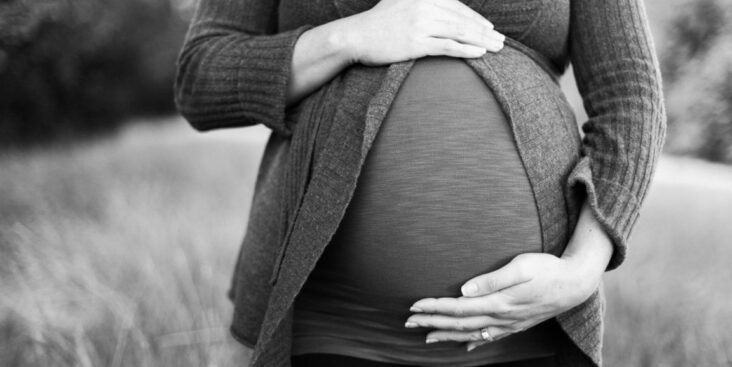Advocates discuss the push for improved maternal outcomes in Arkansas
by May 22, 2025 7:09 am 974 views

It’s been a little more than a year since Gov. Sarah Sanders signed an executive order to improve maternal and infant health. There has since been a flurry of activity to move the state out of last place on most metrics related to the issue.
Stakeholders spent the summer working to develop a plan to address better access to care with the use of doulas and community health workers, reimbursement changes to how Medicaid covers pregnancy, and earlier coverage options for expectant mothers.
Cara Osborne, senior fellow at Heartland Forward and Ingeborg Initiatives, said the plan went back to Gov. Sanders in September ahead of the last legislative session, which was a big win for moms and babies in Arkansas. Osborne spoke Wednesday at the Northwest Arkansas Health Summit held in Fayetteville. She moderated a panel update on the efforts made to improve maternal health outcomes.
Panelist Rep. Aaron Pilkington, R-Knoxville, said he’s hopeful the legislation and advocacy efforts from Heartland Forward, which recently established a Maternal and Child Health Center for Policy to enhance maternal health, will unite local leaders, health care providers and community organizations to develop effective solutions, share resources and leverage data to build healthier communities.
Osborne, who runs Heartland Forward health initiatives, said the work will continue to improve birth outcomes, maternal health and access to care during and after pregnancy. Also, the work being done by the University of Arkansas for Medical Science’s (UAMS) Institute for Community Health Innovation is on the ground using community health workers to reach every corner of the state in the effort to improve care.
Cassie Cochran, deputy director of public health for the Arkansas Health Department, said there have been many starts and stops over the years with efforts to expand access to care, but this time is different. The health departments have not traditionally offered maternal health services, but that has changed as maternal health was added in eight counties with four more being added soon.
One big change in the legislation passed was the unbundling of Medicaid funding for pregnancy. This was an effort championed by Osborne and Ingeborg Investments. Half of the births in the state are covered by Medicaid, which previously paid a lump sum for all of a woman’s maternity care. The Healthy Babies and Moms Act allows providers to get paid for each phase of care provided, from prenatal visits to postpartum. It also allows for midwives, doulas and community health care workers to be compensated for their role in keeping mom healthy. The Medicaid reimbursement increased by 70% to be more in line with the true cost of care.
Presumptive eligibility was also a win for expectant mothers needing Medicaid funding. With the new presumptive eligibility, Medicaid coverage can begin immediately before they secure their card through what can be a lengthy signup process.
Rep. Denise Garner, D-Fayetteville, said providing coverage early is crucial to better birth outcomes and brighter long-term opportunities for the child and mom.
“I came to this work from my neurobehavioral side of nursing. We know that prenatal to three is the most important time in a child’s life and we are not doing enough. We know that 85% of your brain is developed by the time you are three years old,” Garner said.
She applauds the work to get better access to prenatal care and coverage, but said more should be done with nutrition education and early childhood development. When asked what she would like to see tackled next year, Garner said discussions are needed around contraception education and access to abortion to save a mother’s life.
Legislation stopped short of extending postpartum care for mothers. Osborne said there are a growing number of services available through community health workers and other networks to help address postpartum care. Ingeborg Investments launched a Pregnancy+ mobile app for Apple and Android devices where expectant moms can find custom and state-offered information and tools to increase access to care, improve health literacy, and adopt healthy habits.
Osborne said 8,000 people in the state have identified as pregnant, evenly split between Medicaid and commercially covered patients. She said 58% of the app users are 24 years old or younger.
“One of the toughest populations to reach in the state is young moms, and so I feel very hopeful that this is a tool to help make sure that those folks are connected to services and know where to find the help that’s available to them,” said Osborne.
Cochran said she is eager to see how the use of midwives and doulas will improve maternal health outcomes over the next year in rural Arkansas.
Pilkington said he would like to see a big map that highlights the successes achieved at next year’s summit from expanded access, improved funding initiated over the past two years. He said reimbursement remains challenging and even with expanded Medicare funding for pregnancy, hospitals are struggling.
Garner agreed, saying it’s also harder to recruit doctors to the state because they can make more money elsewhere.
The Arkansas Center for Health Improvement identified 33 Arkansas hospitals that provide labor and delivery services. Seven hospitals in the state have closed their obstetric units since 2019. Among the state’s rural hospitals, 60% do not offer the services, which means expecting mothers must travel farther to deliver a child and receive prenatal and postpartum care.
